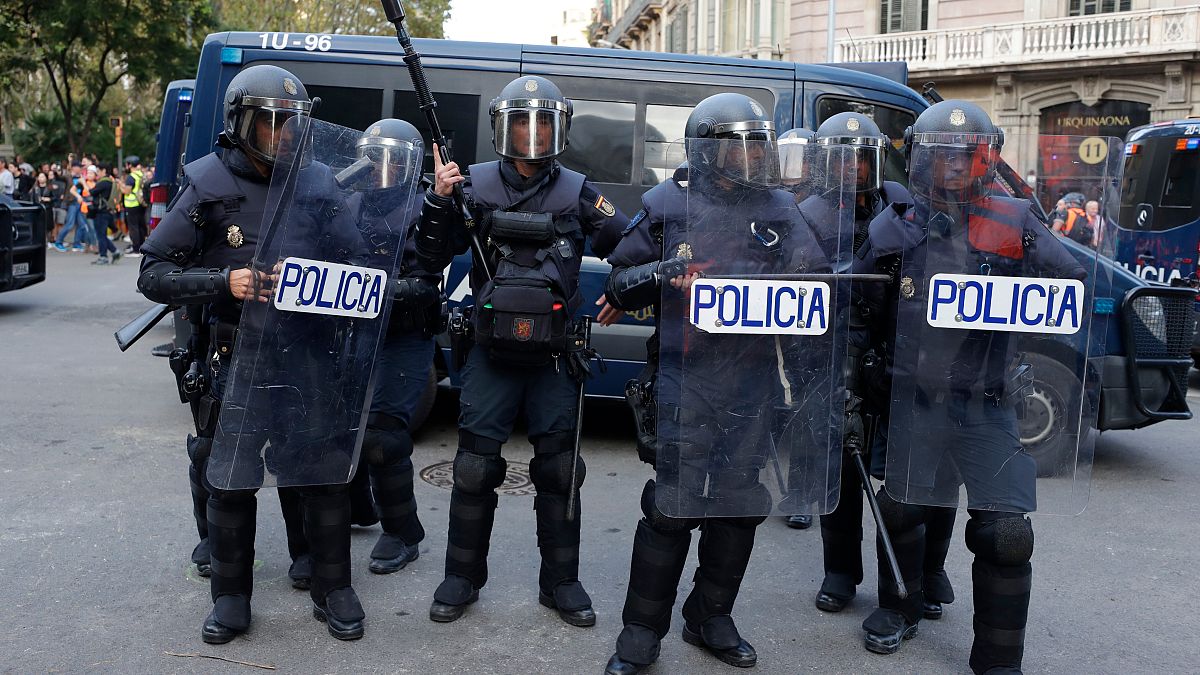Housing activists, environmental groups, and unions in Barcelona recently mobilized to protest against soaring housing costs in the city. Around 100 people gathered to demonstrate during a real estate fair called “The District,” where they clashed with police as they attempted to approach the fairgrounds. The protesters’ main concern is the drastic increase in rent prices by 68% and house purchase costs by 38% over the past decade, making it difficult for many locals to afford housing. In addition to housing activists, environmental groups and unions also joined the protest, highlighting the widespread impact of this issue.
A major contributing factor to the housing crisis in Barcelona is the strain caused by tourism on the housing market. During the summer, protesters targeted tourists by spraying them with water pistols and urging them to “go home.” Economists believe that short-term rentals, particularly those listed on online platforms, have further exacerbated the situation by limiting available housing for residents. In response to these concerns, the Barcelona city council recently announced plans to revoke around 10,000 tourist flat licenses within the next five years. This initiative aims to prioritize residential use over tourism in one of Europe’s most popular destinations, reflecting a global trend of cities taking action against the negative effects of mass tourism on local communities.
The escalating national housing crisis in Spain, particularly in tourist cities like Barcelona, has prompted widespread activism and calls for urgent measures to address the issue. The protest against the real estate fair “The District” signifies a growing movement of citizens demanding affordable housing solutions and government intervention to ease the burden on residents. By targeting tourists and short-term rental providers, protesters aim to draw attention to the root causes of the housing crisis and advocate for policies that prioritize the needs of local residents over tourism interests.
The involvement of environmental groups in the housing protest underscores the interconnectedness of housing affordability and sustainable urban development. Rising housing costs not only affect residents’ quality of life but also contribute to environmental degradation and inequitable resource distribution. By mobilizing a diverse coalition of activists, unions, and environmentalists, the protest in Barcelona signals a broader societal concern about the social and environmental impacts of unregulated housing markets. Through collective action and advocacy, these groups are working towards equitable and sustainable solutions to the housing crisis that prioritize the well-being of both residents and the environment.
The Barcelona city council’s decision to revoke tourist flat licenses reflects a shift towards more sustainable urban planning and development practices in response to the housing crisis. By restricting short-term rentals and prioritizing residential use, the council aims to address the root causes of the housing affordability issue and create a more balanced housing market. This proactive approach aligns with international trends of cities taking decisive action to protect their communities from the negative effects of unchecked tourism and speculative real estate practices. By implementing policies that promote long-term housing stability and affordability, Barcelona is setting a precedent for other cities grappling with similar challenges in the face of rapid urbanization and population growth.
In conclusion, the housing protest in Barcelona serves as a powerful example of grassroots activism and community mobilization to address urgent social and environmental issues. By bringing together diverse groups of stakeholders, including housing activists, environmentalists, and unions, the protest highlights the collective efforts needed to tackle complex urban challenges like the housing crisis. Through targeted advocacy, direct action, and policy reform, these groups are advocating for sustainable and equitable solutions that prioritize the needs of local residents and the environment. The Barcelona city council’s response to the protest, including plans to revoke tourist flat licenses, demonstrates a commitment to addressing the root causes of the housing crisis and creating a more sustainable and inclusive urban environment for all residents. As cities around the world grapple with similar issues, the case of Barcelona provides a valuable lesson in community engagement, policy innovation, and social justice advocacy for equitable urban development.










